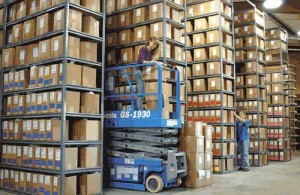 Leadership & Organizational Behaviour: you will have to learn about this subject. Example, you might have a CEO who has a misogynistic head engineer, or staff who are envious of the salaries of others. When shareholders visit, the CEO might screw up by allowing those visitors to roam around the company offices to discover the lousy situation for themselves. Did the CEO create his own lack of empowerment? How can one be a leader and manage with inspiration and structure? Did the CEO deluge upper management with information in order to cover herself? Most people are skeptical of whether it is possible to teach leadership. There are all kinds of ways to reward. At a plating company you could reward highly-productive employees with extra time-off and turn a blind eye to their intimidating and casual racism. This action might help keep wages lower and secure the loyalty of workers who might otherwise have left. Ethics is ever present. Wall Street perks, for example, having a free cab ride home was something that investment bankers took even if they didn’t need the perk. Those who didn’t, hated the free cab ride perk as they didn’t need it; the psychological satisfaction of employees is important. The idea of people as an individual is not useful to most business thinkers, they want militants so understanding them might seem less salient.
Leadership & Organizational Behaviour: you will have to learn about this subject. Example, you might have a CEO who has a misogynistic head engineer, or staff who are envious of the salaries of others. When shareholders visit, the CEO might screw up by allowing those visitors to roam around the company offices to discover the lousy situation for themselves. Did the CEO create his own lack of empowerment? How can one be a leader and manage with inspiration and structure? Did the CEO deluge upper management with information in order to cover herself? Most people are skeptical of whether it is possible to teach leadership. There are all kinds of ways to reward. At a plating company you could reward highly-productive employees with extra time-off and turn a blind eye to their intimidating and casual racism. This action might help keep wages lower and secure the loyalty of workers who might otherwise have left. Ethics is ever present. Wall Street perks, for example, having a free cab ride home was something that investment bankers took even if they didn’t need the perk. Those who didn’t, hated the free cab ride perk as they didn’t need it; the psychological satisfaction of employees is important. The idea of people as an individual is not useful to most business thinkers, they want militants so understanding them might seem less salient.
Lessons from a Masters In Business Administration: Ranking Industries
 Ranking Industries: in your MBA program, you might be expected to look at a list of twelve industries, from a basic chemical company and a grocery chain to an airline and a retail bank, and then compare it with a list of unlabeled balance sheet percentages and ratios. The assignments then asks you to match the industry to the correct set of numbers.
Ranking Industries: in your MBA program, you might be expected to look at a list of twelve industries, from a basic chemical company and a grocery chain to an airline and a retail bank, and then compare it with a list of unlabeled balance sheet percentages and ratios. The assignments then asks you to match the industry to the correct set of numbers.
Q: How are ratios, and percentages related to a given business model?
 Companies that have inventory are always trying to balance the cost of storage with supply. You might want to buy large quantities but not so much that you cannot house them. If the ratio is 1 to 1, then the inventory is equal to how much it sells. In a grocery chain you would expect a high ratio as inventory is replenished on a daily basis. In jewelry, you would expect a ratio might be below one, as each item is held for a long time before it finds a buyer. A company with many fixed assets such as a store + factory would likely have more debt than say a deal a day site whose main assets were people. Banks don’t like lending to law firms, or deal a day sites because they can walk out the door, and leave at anytime.
Companies that have inventory are always trying to balance the cost of storage with supply. You might want to buy large quantities but not so much that you cannot house them. If the ratio is 1 to 1, then the inventory is equal to how much it sells. In a grocery chain you would expect a high ratio as inventory is replenished on a daily basis. In jewelry, you would expect a ratio might be below one, as each item is held for a long time before it finds a buyer. A company with many fixed assets such as a store + factory would likely have more debt than say a deal a day site whose main assets were people. Banks don’t like lending to law firms, or deal a day sites because they can walk out the door, and leave at anytime.
[This is a synopsis of several books on the MBA experience including What They Teach You At Harvard Business School by P.D. Broughton]
Lee Iacocca: Basic Management Tips
- Play dumb when you have to: In December of 1960, McNamara pressured Henry Ford to promote Iacocca to head of the Ford Division, Lee was told to play it cool when being taken to Henry Ford’s office and when offered the position. The reason was that Ford II wanted to make the offer as though it was his own decision and surprise Iacocca.
 Use common sense and experience in management: Iacocca relays this message about common sense that he picked up from Charlie Beacham (top sales guru) from Iacocca’s Chester, Pennsylvania days; “if you can’t tell the difference between a scope of horse crap and vanilla ice cream then there is no hope for you.” Common sense is something you have to be born with. Logical reasoning is a kind of common sense.
Use common sense and experience in management: Iacocca relays this message about common sense that he picked up from Charlie Beacham (top sales guru) from Iacocca’s Chester, Pennsylvania days; “if you can’t tell the difference between a scope of horse crap and vanilla ice cream then there is no hope for you.” Common sense is something you have to be born with. Logical reasoning is a kind of common sense.
- Be decisive as a manager: To act is the one key. The most important decision in a company is made by individuals and not by committees. Decisions by committee take dialogue, which is not what you need when you are trying to shoot a moving object like a duck, according to Iacocca. You need to look at the facts as far as you are able to outline them and make decisions accordingly. Too many MBAs will wait until they have 100% of the facts. The problem is that too much education leads managers to over analyze their courses of action. For Iacocca, timing is everything, getting the right decision at the right time is the difference between success and failure.
 A leader takes a leap of faith: 1) even the right decision is wrong if it’s too late; 2) there is no such thing as certainty so stop trying to create it; 3) don’t be the little boy with the big dog that leads the boy wherever he wants.
A leader takes a leap of faith: 1) even the right decision is wrong if it’s too late; 2) there is no such thing as certainty so stop trying to create it; 3) don’t be the little boy with the big dog that leads the boy wherever he wants.- Always be careful of those who may be jealous of your success: Iacocca had no real credentials when he was made head of the Ford Division. He was an ideas guy not a product guy, you need to have a major success in order to prove your worth, hence Iacocca spearheaded the development of the Mustang…
 This is a synopsis & analysis based on Iacocca: An Autobiography and other miscellaneous research sources. Enjoy.
This is a synopsis & analysis based on Iacocca: An Autobiography and other miscellaneous research sources. Enjoy.
Urban Barns & The Future of Agriculture
The last 100 years saw the migration of millions of people into urban centres and then some of those people moved out to suburbs. As the technology in agriculture improved, the economics of extensive land ownership made less sense every incrimental season. However, the standard of living improved incrementally generally and unlike in 1905, we are now able to do things like take a warm shower on a daily basis and get produce from another part of the globe onto our dinner plates.
Now, the natural logic of human progress pushes commercial organisations (especially in cold climates) to explore how to get quality produce to consumers more efficiently. Can it be grown locally? Florida oranges cost a lot to get over to England? Why not grow plants in a factory on your local street corner? This CBC presentation shows the future of urban agriculture and many have predicted the format, so can we expect that it will be common place in +2025? As long as there is a commercial rationale, business model/starter costs and consumer objections are addressed, expect companies like Urban Barns to grace your plate with their purple light generated produce. Probably in the next decade or two. Price & quality are going to be critical for making this more commerical than not.



